Episode 4 of the 'How to eat alone' podcast looks at the pressure and expectations placed on women to have children. In this episode, I talk to high profile nanny, Elisabeth Scott, who is an advocate for child-free women, about why she made the decision not to have children, how the medical profession treat childless women, her recent hysterectomy and why she loves cereal so much. This episode is published alongside a recipe for overnight oats for one.
You can find more about the We Are Child Free project, which Lise was involved with, here. Lise has also featured in articles by The New York Times as part of the same project.
I thought these articles were interesting about male bias for women's issues (note - there's way too many for me to post, here are just a handful... I should also point out that I am NOT saying that hysterectomies should be liberally given, they are a serious and irreversible operation but I am pro choice and strongly against doctors not treating women’s pain seriously)
'I begged my doctor for a hysterectomy...' BBC News
'The Female Problem - how male bias in medical trials ruined women's health' The Guardian
Lena Dunham's hysterectomy, Vogue
Here’s a little bit about endometriosis, which Lise mentions that she has in the podcast episode.
What is Endometriosis? TOTM
I've really enjoyed following the following period health websites/instagram pages/podcasts. Happily, there is now a tonne of information and support groups for women and their periods. I would encourage all women, regardless of whether they have 'bad periods' to tap into these important resources.
Balance your hormones, fix your period, live your life Nicole M Jardim
Episode 4 Transcript: interview with Elisabeth Scott by Julia Georgallis
Hello and welcome to the How to Eat Alone podcast with me, Julia Georgallis. I’m a baker and I write about food.
This podcast discusses issues surrounding solitude and solo dining. Over the last few episodes, I’ve been talking to different people about various aspects of loneliness and aloneness, which are not necessarily the same thing. With every episode, I’ve been sharing recipes designed for one, because I find that most recipes are written for two or more people, so you can cook along whilst you listen - think of this podcast as kind of like a dining buddy.
This episode is about babies, or in mine and my guest for this episode, Elizabeth Scott’s case, a lack of them. I don’t know what your experience of this is if you also don’t have children but I’ve reached an age now where people just openly started asking me what my personal plans for procreation are. Like not just friends and family but it’s strangers as well now. Bizarrely, it’s even got to the point where, over the last few months, SO MANY Uber drivers have asked me whether I had kids, or if I wanted kids, or will I have kids in the future or did I have anyone to have a kid with.
It is a bit of a funny topic for me - I am nowhere near having children. I’ve been on a bit of a weird journey with it actually and with the idea of starting a family. But aside from that, recently I’ve kind of made my peace with the fact that if I have children in the future, that would be lovely but also if I don’t have children in the future, then that’s going to be lovely too and I’m just going to live my best life. So I don’t MIND all that much when people ask, but I’m not sure it’s small talk or Uber passenger chat. It’s a question loaded with so much societal expectation, specifically for women, and you don’t know how a woman has experienced these expectations in her life and whether there’s been any trauma surrounding motherhood for her. In my case, there’s two main, very simple reasons why I haven’t had kids - the first is that I have never met anyone I thought was suitable to father my children. The second wasn’t necessarily conscious - I’ve kind of only realised it recently but ultimately I had shit to do, guys. I had things I wanted to experience before children and things I wanted to do for myself, which is the case for a growing number of women. Did those Uber drivers ever think of either of those two things when they asked me those questions? That it is sometimes a woman’s choice to not have children and for some of us it’s not that we’re just sitting here, waiting in the wings for someone to choose us to be the mother of their children.
There’s so much to say on this matter but to kick this discussion off, I spoke to the incredibly outspoken Liz Scott to discuss her very clear decision to not have children and her experience of having a hysterectomy a few months ago. Liz has become a bit of a spokesperson recently for smashing expectations about motherhood, she’s featured in the Berlin Based WE ARE CHILD FREE PROJECT - she’s also spoken to the likes of The New York Times about her decision to not become a mother. Now I love the irony of what Liz does for a living and we start by talking about that…
Tell me about your job, what’s your job description
ES - I’m a high profile nanny, is my job description. So I look after newborn babies of people in the public eye. Usually start when they’re around three, four months. Usually stay for the first year of their life, one or two - maximum.
JG - Have you ever stayed longer, with the kids?
ES - Yeah, for sure, yeah. The longest I’ve stayed was from 0 to 5.
JG - Was that just because you loved the kids?
ES - Yeah, I did, that particular child, but it also just messes you up when you stay for that long.
JG - Really?
ES - So after that job I made a conscious decision to just nip it in the bud and just get the job done, you know, and just switch every year because then you don’t get too attached.
JG - Right, right. And what is it about newborns?
ES - Errr… you can take them to wine shops?
(Both laugh)
ES - Yeah, babies are so cute and I really just like having an influence and an impact on children. When they’re so young they’re taking in absolutely everything like a sponge.
JG - Yeah. I also just think you’re also having a massive impact on the women, on the mothers as well.
ES - That’s a really good point, that’s true.
JG - You’re like the most helpful you could ever be in that first really difficult year.
ES - Right. Exactly. Giving them tips on what to do, how to manage, right? I’ve seen a million babies, this is their first one. It is really handy.
JG - So the reason that I wanted to talk to you was that you’ve been very vocal about your decision not to have children and you’ve been involved in various projects which promote women being child free. But, have you always known that you don’t want kids?
ES - Kind of. I’ve always had an inkling. And then I really made the firm decision at about 26.
JG - I mean obviously, not wanting kids and not liking kids are two completely separate things but like how did you get into child care?
ES - It’s really funny actually, I got into child care because I hated kids
JG - Oh, you’re joking (LAUGHS).
ES - Yeah, absolutely despised kids - kids, babies, the lot of them, hated ‘em. Then my mum became pregnant, she didn’t plan it, when she was 40, so I was already 19 turning 20 and I was like, sod this! This is going to ruin my life, I’m not babysitting, I don’t want to come home from work and listen to screaming, I was just like I don’t want to live in a house with a baby and she was like, well tough because we’re having one, this is happening. And she was like, you know what you’ve got real big attitude, why don’t you go and do something else with your time? Like go and volunteer in a play centre, or do something! Just learn to like children, you know, they’re really innocent, it’s not going to be your brother’s fault when he comes into this world and I really think you ought to do something so that you aren’t mean to him. I was like, she’s got a point. And I did it and it turned out to be so much fun. And I was like, ah, not all kids are little shits, some of them are pretty cool and they have interesting things to say and then what, 15 years later, well, 20 rather, I’ve just decided what I like best, you know, but I’ve worked with all kids and teenagers, and, yeah it’s really interesting.
JG - I’ve been having a look at the We Are Child Free project which is great - how did you find that?
ES - So it was someone that I knew quite loosely, I started to see her stories and early interviews just cropping up and I was like, oh that seems interesting, I can really relate to it. I’ve always been the odd one with my friends that never really had long term relationships - it’s funny because I still get broody from time to time. I’m like ‘ohhh that baby’s so cute…’ I mean, I’m not sure you can call it the same thing but I’ve often thought about what it would be like if I was to be a mum, I have a baby name list on my phone that I compare with my friends - it’s really weird, but when I think about it for long enough and when I discuss it for long enough with my friends, I’m like… eughhh. NO! I really don’t want to be responsible for another human being for the rest of my life.
JG - That’s totally fair enough
ES - Yeah, I don’t want to. I like kids, I like spending time with them, my closest friends are in the process of getting kids or already have a kid and I’m super excited to be an auntie or a proxy parent but it’s like, nooo! I have absolutely no desire to go through all of that forever.
JG - Do you feel like the odd one out?
ES - Yeah. Definitely. 100 percent. But I’ve always been that way. Because you grow up thinking, right, I’ve got to meet someone, especially because from also I went to secondary school just outside of London, so it’s kind of suburban and that’s what suburban people tend to do - you go to school, you go to college and you either go straight to uni or you stick with your boyfriend or your girlfriend or whatever that you’ve had since forever, and you talk about moving in together and yadidah… and I, even just the moving in part with someone, I had friends who moved in with boyfriends as young as 19, 20. And I was just like, why? Why do you want to get a mortgage at that age? Like, I want to travel! I don’t even want to live in this country anymore. And I just did it! I’ve always been that odd one that went travelling here, learnt this language, ate that food and my friends always just lived vicariously through me and then it was only really until I moved to Paris that I met women who were the same as me - or what I felt were the same as me. And they’re some of my really good friends now, the only difference is they want to be parents and I don’t.
JG - I think everything you’ve just said I relate to it so much, definitely helps, doesn’t it, to be surrounded by women who just respect what you’re doing, even if you do feel like the odd one out, they’ll still respect it. So you grew up just outside of London?
ES - I grew up in London, West London, W10, represent… (laughs)… Left when I was 13 and my mum bought a house in Milton Keynes. I moved to Paris, I only did one year at first because, I dunno, it didn’t really agree with me, I dunno… so I left Paris and then I moved to Milan. I stayed in Italy for a bit, and then I was like, nope, I’ll go back to Paris. And I stayed in Paris for 9 years and now I’m in my fourth year in Berlin.
JG - But your family, did you say, were Ghanian. So Ghanian. London. But, like London and also suburbs. And Paris. And Berlin. And Milan. That’s a lot of different cultures. How do you think all of those different cultures think of child free women and have you had different treatment in all of those countries and cultures that you’ve been exposed to about not having kids?
ES - That’s a really good question actually! I hadn’t thought too much about it, right, because when I move countries it’s still always for childcare, so the people that I’m hanging around are family people right, so, I don’t know. In Italy - no. It wasn’t that weird I don’t think. It was also still a period where I was just deciding, I wasn’t quite sure, so my answers maybe to questions around that probably weren’t so defined or as harsh. And then Paris… yeah… people did find it strange, but also not very strange because it’s super difficult to meet someone in Paris - French men are absolute lotharios, you know…
JG - (Cheeky laugh)
Yeah I know I’ve dated a couple.
ES - Also Paris is the first city where I met a lot of older mums, you know? So it was never really an issue for me then, I’ve only really been talking about it more and more since I’ve moved to Berlin and, in particular, since I’ve moved to Prenzlauerberg because, don’t quote me on this, but I think Prenzlauerberg is just the most populated neighbourhood of people starting families - it’s like a known place to come and have a kid because everything facilitates young families here.
JG - That’s really interesting, but I also feel like Berlin is a place where… you know if you want to move to Berlin and be in a thruple and adopt a kid and raise them with two other people, Berlin is the place to go because it’s very open minded, like, family structure wise, and also everything else wise.
ES - Yeah this is also the thing why people are still moving to Berlin in a hurry right, yeah, it’s a really interesting place, definitely for my job anyway.
JG - I’m Cypriot, I’m 33 and childless. I would like to have kids but I dunno when it’s gonna happen. And I see my aunties looking at me out the side of their eyes like… what’s she doing? She’s VERY old. Does that happen in Ghanian culture as well?
ES - Absolutely. Especially African women, it's customary to just pop them out, not really stop. (Laughs) Like no way. I’m so far removed from that anyway, but also it’s quite different because my mum moved to London when she was 5, so she’s more British than Ghanaian, so it changes and influences a lot because she didn’t really have that so it wasn’t really passed on to us.
JG - I’m sort of in the same situation in that my mum was born here, but I do still see it in the diaspora, like even though people are here and their families have been here for 50 years but there’s still these old-school pressures. Although, there’s pressure on women full stop…
ES - Absolutely. It’s really unpopular to be a woman unfortunately.
JG - Oh yeah it is really is I’ve noticed that.
(THEY BOTH LAUGH)
JG - I think the thing that really interests me is, I saw about your hysterectomy. I read a couple of things and listened to another podcast with a woman who wanted to have a hysterectomy, she didn’t want kids, and was surprised to find, I say I’m surprised I’m not really, that her doctors didn’t want her to do that. How do you find your doctors treated you and your decision to have a hysterectomy?
ES - This was interesting because I never really saw a whole bunch of doctors when I lived in France. The decision that led up to the hysterectomy was the fact that I found out I had endometriosis, so my periods were absolutely awful and they’ve always been awful but I’ve kind of just put up with it because, you know, that’s what women do. We put up with things. We think ‘oh well, I’ve been dealt a bad card but I’m sure someone else has it the same’ you know? You just put things to the side and crack on with it. And then one particular month the pain was absolutely excruciating. I would come on my period and sometimes they would be so strong, I would just pass out.
JG - Oh my god
ES - I was like this can’t be happening when I’m in charge of another human being that is so tiny and can’t walk. What if I’m carrying a baby? Luckily I’ve been putting up with it for so long that I kind of realised, recognised the signs of when it was happening, or when I was in too much pain. And of course you don’t take time off of work once a month because you’ve got your period, so you just kind of deal with it, right? And then after passing out I was like enough is enough this isn’t normal. This pain isn’t normal. Guys are so stupid, sorry to say that but, male doctors were like ‘it’s not that bad, take paracetamol, take this, take that, lie down…’ And it’s like are you married? Do you have sisters? Do you talk to any women at all? Do you think I would waste my time, coming to the doctor, crying, begging for help if it wasn’t that bad?
And then, one mum that I was working for at the time had just had a baby and she was like, do you know what maybe you should go and see my doctor, she’s a woman, she’s a gynecologist, so went to see her and I’d been to see gynecologists before and had examinations and everything before and I was never told anything about endometriosis and maybe you wanna do this, or, you know, nothing! I swear it took this one doctor 5 minutes to diagnose me - maybe it was just that one woke doctor and my good luck. But, she gave me an ultrasound and she was like ‘OH MY GOD’ she said a lot of that before she actually told me what was wrong with me. It was petrifying. She was like ‘look at this on the screen’ and I was like ‘What? Like I don’t know what’s happening! And she was like ‘well, either you are pregnant right now or that is an absolutely humongous fibroid inside of you.’ And I took a photograph of it because I couldn’t believe it but she was like ‘this is your womb, this is the space around your womb and this is the space that the fibroid is taking up in your womb,’ and it was almost all of it - I’ve still got the photograph. It was insane. And she was like ‘you need to call a doctor this week to see when you can get that removed.’ And it just snowballed from there really. And I absolutely refused from that point on to see any male doctors about this problem. I was just like, this is about my period, my body, my womb so I don’t want a man’s opinion on it. I'm sure you’re very trained in that area, but still I’m only trusting a woman on this matter because it now looks like I have to be operated on. So I started to join women’s groups, looked more into what endometriosis was and from the point of diagnosis to hysterectomy it was maybe 7 weeks. And at first my gynecologist, even though she was super nice and really woke and she was like ‘hmm I don’t think you should have a hysterectomy, it's pretty drastic. You say you don’t want kids now but anything could happen, anything.’ And I was like ‘Nah. Listen to me. Let’s play your game. Say I meet the absolute love of my life tomorrow. I'm 39. What are we gonna do? Like I’m gonna suddenly decide I love him so much that I wanna carry on having these painful periods, probably find it incredibly hard to conceive because I do have endometriosis, and all the other reasons that I said I didn’t want kids, do you think that they’re just going to disappear overnight because I’m in love with someone? Like that’s a lot to not be bothered about for the sake of a man, right.
(JULIA LAUGHS)
And then we just both just cracked up laughing and she said ‘yeah alright, I’ll sign your paper, you can have your hysterectomy (she says this, laughing).
JG - If you came and said that to me I’d be like, yeah, alright, I get it, no questions asked, I don’t know who these men are who are telling you no because I don't know how they can’t see that you know what you want.
ES - There’s so many men that tell me, to the point, the insanity even reaches to the level where on a dating app, ok so I’m on Hinge and Hinge is quite specific. You have to write if you want kids or not, like all questions are super specific so you know as much about the person before you meet them. So my page clearly says I’m child free, also can’t have children, that was my choice to put that on there. So then you go on a date with a guy. So this guy was like ‘yeah I don't want kids, bla bla bla, I read your interviews, this, that, it’s really empowering, bla bla bla,’ he gave it all tha speech, probably just wanted to get laid. Second date he was like ‘Hmmm I’ve thought about it actually and I really want kids. I really think you might change your mind too’ and I was like (makes a funny noise) excuse me? I’ve chosen not to have children. Do you understand how that works? He was like ‘yeah but you can do surrogacy, you can adopt, I think you might still want to be a mum.’ And I was like ‘you’re a prick. Just get out of my face, don't waste my time again, do me a favour, don't waste any woman’s time again. If she writes on her profile, if you meet her and the answer is no, no, no how about you just take it as a fucking no.’
JG - I mean what you just said is a question of consent, it’s coming at us from every angle, I’m horrified… I don’t know what to say, I think it’s different for me because I do want kids but I also feel like that’s been taken seriously either. Like I think there’s been a lot of guys who’ve wasted my time, knowing full well that I want kids without intending on having kids with me, I think it works both way. I think in the medical sense, I’ve also had that experience. I was misdiagnosed with endometriosis when I was 19 by a male gynecologist - he said ‘you have endometriosis, we’re going to operate on you but you need to think about having kids very soon otherwise you’re not going to be able to have kids.’
ES - Nooo
JS - Yeah. He operated on me, I don't know what he did, fast forward a few years and I saw a new gynecologist, lady gynecologist and she said ‘I don’t think you’ve got endometriosis, I don’t think you ever did and this guy has left you with scar tissue.’ When you said I don’t want to see male doctors anymore, I also made that decision then - NO MORE MEN LOOKING AT MY EQUIPMENT. Like I said before I do want a family - sometimes I wish I didn’t. Sometimes I wish I had that kind of attitude because I think it would be easier because then I could just live my life without everyone giving me an opinion. But then again, everyone gives you an opinion about everything I guess so…
ES - Yep.
JS - I mean I guess you are very much an independent woman, like you live on your own and I guess you’ve lived on your own for a long time. Is there anything that you go to when you cook for yourself?
ES - I do like food, I also really like cereal which I’m not sure counts as food that you cook. And that unfortunately, is… I’m going to have to lower the tone of the food podcast… but…
JG - Nah it’s fine, I love a low tone.
ES - That is my go to ‘I’m upset, he’s an idiot I’m gonna eat a bowl of Toppers.’ Because it’s super easy, I don't have to worry about it, it’s sugary or I can have one that's not sugary or I can have one that looks fun. I love - cereal is like my chocolate. Like ‘oo I’m going to sit on the sofa and eat Toppers and feel bad.’ I think the worst ones I eat are Toppers and Crunchy Nut Cornflakes. But otherwise it’s things like Weetabix, Shreddies, I dunno, so many… Raisin Wheats… Dinner for me is the hardest thing. I would like to eat dinner with someone or eat out. Also because of my job right, I always have to cook and plan meals for a baby that usually involves cooking something nice then smashing it all up or putting it in the blender.
(THEY LAUGH)
JG - Do you ever just take it home though Lis?
ES - Yeah I do, I’ve eaten mushy puree so many times because it tastes so damn good. But it’s not instagrammable. I can't be like ‘oh look what I’m eating for dinner, or I’m so proud of this roast chicken that I’ve made.’ Also, just living on my own, I don't want to make this delicious big meals and then eat it four times a week
JG - Well that’s why you’ll have to listen to my podcast. Yeah I know what you mean.
I feel like there’s a diet in that though, I feel like there’s a diet fad you can start… the eating some high quality baby food diet. I feel like you could make millions off it to be honest with you.
ES - Alright let’s ™ it now, it’s my idea. We’re gonna come up with fancy baby food, also good for adults.
JG - Also good for the busy adult…
(They both crack up laughing)
JG - That’s all the food chat needs to be - I’m really happy with that. Cereal and baby food.
(They laugh even more.)
I think Lis might legitimately be a modern day Mary Poppins but make Mary a feminist who discusses women’s reproductive rights. She’s got the whole ‘I’ll leave when the wind changes’ kind of vibe, and I think she’d be a really stern but super fun nanny which I think Mary Poppins was supposed to have been as well.
I just want to talk about hysterectomies a little bit more - as you can hear, Lis is a resolute person and she did her research and she thought about what she wanted to do. But I need to make it abundantly clear that it is not a case of I have endometriosis or whatever other gyneocological issue it is so I’ll remove my womb and it’ll be gone, it’s not that simple and Liz was aware of that and I would like everyone to be aware of that - though she does tell a good story and she is hilarious, she did know it was no laughing matter, there are implications to having a hysterectomy and there’s a long recovery time afterwards, as there is when you remove any major organ and Lise is still recovering really.
Thankyou so much to Lis for sharing her story. I really wish her healing and I think the biggest thing I wish for Lis is no more bullshit in her life from here on in. If there’s anything that we’ve spoken about in the podcast episode that has touched you or you feel like you want to share your own story of motherhood and loneliness, or if you’ve had issues surrounding your own fertility, if you’ve had endometriosis or any other gynecological problem, feel free to get in touch with me. I’d love to hear from you.
Now, I’m going to leave luxury baby food recipes to Lis, because she’s already TMd them and I it would be super patronising if I left you a recipe to make cereal but in the theme of fun grains to eat at breakfast time, I do want to leave you with a recipe for one of my favourite things to make myself for breakfast. Overnight oats. I’m a bit lazy, I often can’t be bothered to make myself a good breakfast when I’m on my own. But sometimes I make a batch of this up and it usually lasts me about 3 or 4 days. Overnight oats are super simple to make, and it always starts my day off the right nut. You can top your oats with fun things like honey or nut butters or fruit or yoghurt, so it doesn’t feel like you’re eating the same thing everyday and I think they’re also quite good for snacks. You can find the recipe at howtoeatalone.substack.com, and you can also subscribe to the substack page if you want more recipes, more news, more things about loneliness, so have a look and see if any of the paid or the free subscription options take your fancy! I’ve put the links to the We Are Child Free project, which is awesome you should definitely check it out, and to endometriosis help pages and a few bits of information about period health. You can find more about my podcast on instagram, the handle is @howtoeatalonepodcast. And, as always, if you like this podcast, please, please share it with someone who you think might like it as well. Thank you for listening to me and supporting this pod. I really hope you enjoyed being alone with me and I’ll see you soon for the next episode of How to eat alone...
Find out more about 'How To Eat Alone' here
Find out more about podcast host, Julia Georgallis here
Music:
Ben Beiny
What's Cooking
https://www.premiumbeat.com

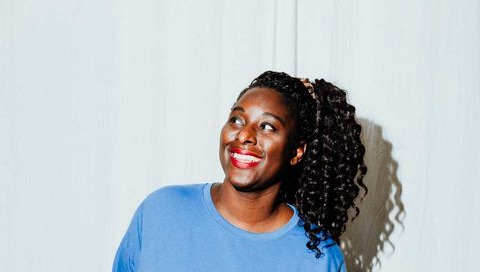






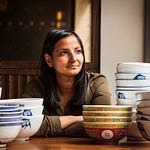
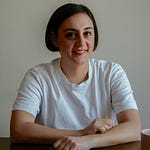
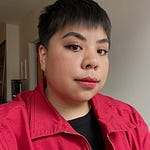

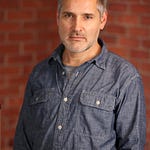
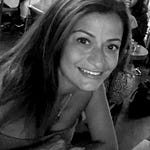
Share this post